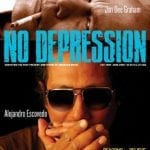Charles K. Wolfe: 1943 to 2006
Finding reliable information about country music history was no easy task a few decades ago. Prior to Bill Malone’s landmark Country Music U.S.A., a hardy band of academics (D.K. Wilgus, Guy Logsdon, Archie Green) and collectors (Bob Pinson, Norm Cohen) persevered when few cared.
Country authority and Missouri native Charles Wolfe was an academic with a difference. An English professor at Middle Tennessee State University in Murfreesboro who lectured in literature and folklore, his music work stood out from the pack. His exhaustive research and smart analysis gave him scholarly credibility. But unlike most academic musicologists, whose published work too often borders on unreadable, Wolfe’s expressive, first-rate writing made his work accessible — and entertaining — to non-academic fans. His death February 9 at 62 after years of diabetes-related problems that forced his retirement in 2005 marks the end of an era.
Wolfe’s bibliography began with articles for tiny journals such as The Devil’s Box and Old Time Music and grew to include the books Tennessee Strings, Kentucky Country, and A Good Natured Riot: The Birth Of The Grand Ole Opry. He also wrote books on black Opry harmonica virtuoso DeFord Bailey, the Louvin Brothers and Lead Belly (with Kip Lornell), and co-authored Grandpa Jones’ autobiography, a Devil’s Box anthology, and the forthcoming The Music Of Bill Monroe and The Bristol Sessions.
His aim at broader audiences was deliberate. A Time-Life Music consultant since 1980, he assembled their earliest country (LP) collections and related projects over the next two decades. A three-time Grammy nominee and winner of two ASCAP-Deems Taylor Awards, some of Wolfe’s most significant research graced Bear Family’s lavish books accompanying their boxes on Lefty Frizzell, the Louvin Brothers, Uncle Dave Macon, Hank Snow and Bill Monroe. His magnificent research for Bear’s Carter Family box left a few colleagues envious.
Beneath Wolfe’s amiability, however, beat the heart of a fearless iconoclast who could back it up. He revealed, for example, that Bailey’s 1941 ouster from the Opry wasn’t racial, but the consequence of a nationwide feud between ASCAP and BMI. In Riot, he exposed the artifice behind Opry founder George D. Hay’s insistence on country “purity” with Hay-written press releases describing Opry acts that resided and worked in urban Nashville as “farmers.” He stood firm when Carter descendants took umbrage at meticulous research that identified specific (uncopyrighted) sources for many A.P. Carter compositions.
On a personal note, I approached Wolfe for help in 1980 while writing a Guitar Player series on guitars and American culture. He was a wellspring of helpful information. That conversation launched a friendship that lasted over 20 years as we routinely exchanged tips, information and often-sardonic gossip. Without ever matriculating at MTSU, I became one of his students. Writing for his Time-Life projects taught me much about research; his articles enhanced Country Music magazine’s history publication The Journal, which I edited. We lost touch as his health failed, but the standards he imparted remain at the heart of what I do.
Beyond that, all I can say is it was an honor to know you, old friend. My deepest thanks.




